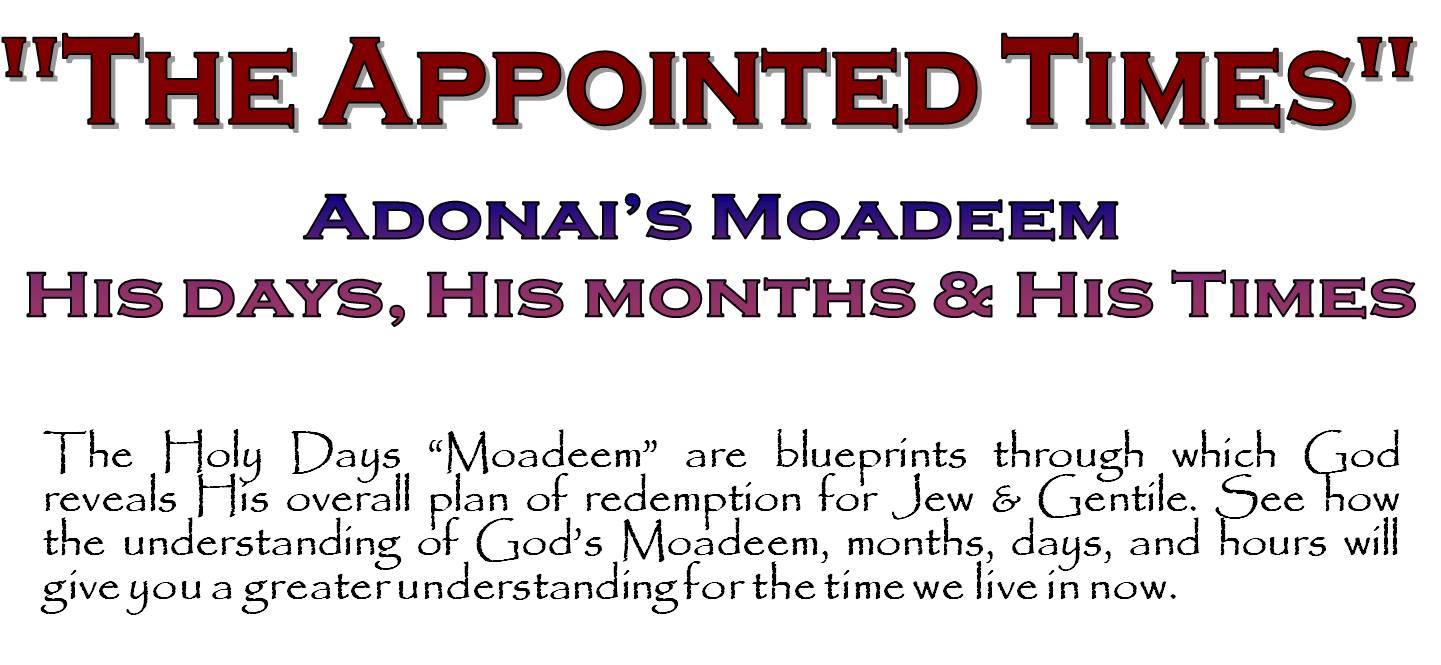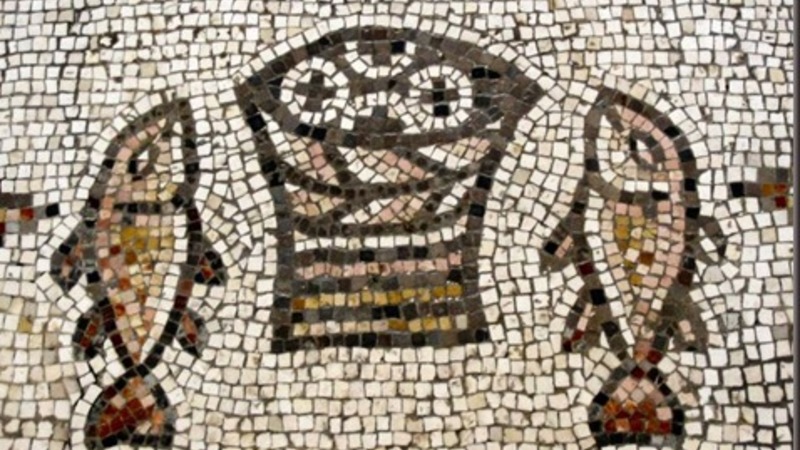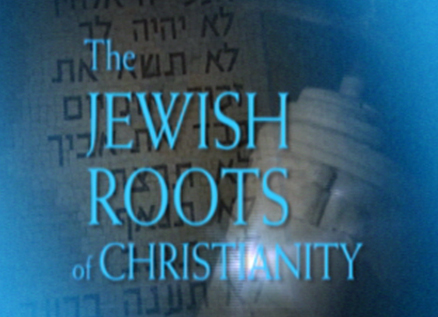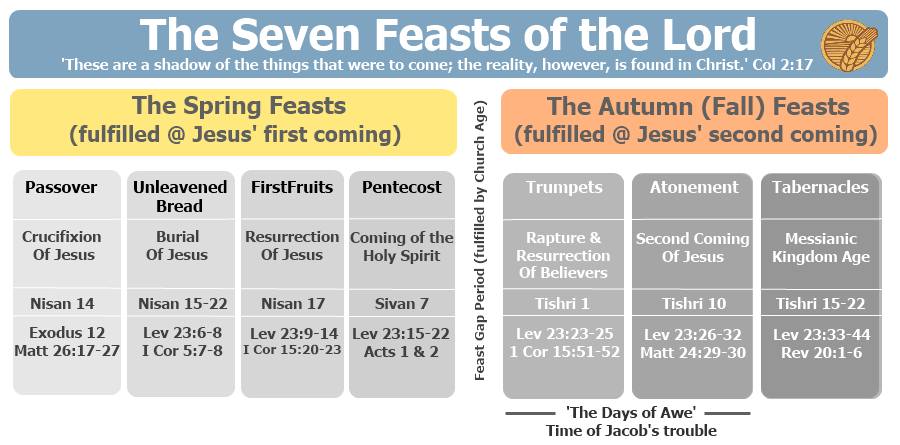Why we celebrate the Biblical and Jewish Holidays
What Are the Biblical Holy Days or Appointed Times?
In Jewish, Judaic Messianic, and observant Christian traditions, mo'edim (appointed times) in Hebrew are crucial. These days are rich in historical and prophetic significance, revealing the truths of JHWH (Yahweh), Elohim, our JeHoVaH Tsevaoth (Lord God Almighty).
Historical Context and Revival
The early Christian church, influenced by Emperor Constantine and anti-Semitic early church fathers, promoted the belief that the seven Biblical feasts became redundant after Christ's death. This perspective, however, misses several key points:
Divine Consistency: The eternal nature of God's Word and His decrees.
Christ's Observance: Jesus's practice of these Biblical holidays.
The "Back to Our Roots" movement within the Christian community has rekindled the observance of these God-ordained holidays.

Historical Context and Revival
The early Christian church, influenced by Emperor Constantine and anti-Semitic early church fathers, promoted the belief that the seven Biblical feasts became redundant after Christ's death. This perspective, however, misses several key points:
Divine Consistency
The eternal nature of God's Word and His decrees.
Christ's Observance
Jesus's practice of these Biblical holidays.
The "Back to Our Roots" movement within the Christian community has rekindled the observance of these God-ordained holidays.
As followers of Yeshua Ha'Mashiach, Jesus the Christ, we acknowledge that while we are not obligated or commanded to observe the Biblical feasts, understanding and engaging with them can profoundly enhance our faith. These Holy Days, outlined in Leviticus 23, are not just historical or ritualistic commemorations; they are a rich tapestry of God's redemptive plan, spanning from creation to eternity.
The Significance of Understanding the Feasts
Deepening Faith Through Knowledge
Although observing these feasts is not a requirement for salvation, the knowledge of them deepens our understanding of God's plan and wisdom. Leviticus 23 is not merely a chapter of rules; it is a revelation of God's timeline, from creation to the ultimate redemption, interwoven with His grace and sovereignty.
Grafted into the Root of Jesse
As believers grafted into the rich heritage of Israel, symbolized by the root of Jesse, we are encouraged to explore the roots of our faith. This exploration not only enriches our spiritual lives but also connects us more intimately with the broader narrative of God's work among His people.
Leviticus 23: A Window into God's Plan
Taking about 10 minutes to read through Leviticus 23 offers a panoramic view of God's magnificent plan, gloriously revealed through nature and time within the Seven annual Feasts of the Lord. In this single chapter, we find that humanity's existence is framed within these feasts, each representing a significant aspect of our spiritual journey and relationship with God.
The Seven Biblical Holy Days and Secular Holidays
Our document delves into the seven Biblical Holy Days and four secular holidays that occur throughout the year, offering insights and reflections on their meaning and relevance. These observances range from moments of solemn remembrance to joyful celebrations, each imbued with spiritual significance.
The Role of the Holy Days in the Light of Christ's Sacrifice
With the advent of Yeshua Ha'Mashiach, Jesus the Christ, the perspective on these Holy Days transformed. Traditionally, they centered on atonement and the sacrifice for the forgiveness of sins. However, as believers in Christ, who is the perfect lamb and ultimate sacrifice, we understand that our salvation comes solely through grace and faith in Him. This belief does not negate the value of the Holy Days; rather, it infuses them with new meaning.
Colossians 2 : 12-17 (TLV)
12 You were buried along with Him in immersion, through which you also were raised with Him by trusting in the working of God, who raised Him from the dead.
13 When you were dead in your sins and the uncircumcision of your flesh, God made you alive together with Him when He pardoned us all our transgressions.
14 He wiped out the handwritten record of debts with the decrees against us, which was hostile to us. He took it away by nailing it to the cross.
15 After disarming the principalities and powers, He made a public spectacle of them, triumphing over them in the cross.
The Danger of False Wisdom
16 Therefore, do not let anyone pass judgment on you in matters of food or drink, or in respect to a festival or new moon or Shabbat.
17 These are a foreshadowing of things to come, but the reality is Messiah.
Participation, Beyond Obligation to Enrichment
While participation in these Holy Days is not mandatory for salvation, it offers a unique opportunity to immerse ourselves not only mentally and spiritually but also physically and emotionally in the roots of our faith. This immersion brings a richer, more nuanced understanding of our Christian heritage and the Jewish context in which it was born. It allows us to appreciate more fully the depth and breadth of God's redemptive work through Christ, enhancing our spiritual journey and connection with the global Christian community.
The Early Church
A Convergence of Jewish and Gentile Believers
In the first century, the burgeoning Christian faith was primarily a movement within Judaism, characterized by a significant number of Jewish adherents. 
Scriptural accounts in Acts (2:41, 47; 4:4; 6:7; 9:31; 21:20) indicate that hundreds of thousands of Jews embraced the message of Jesus as the Messiah. The apostles and these early believers continued to observe Jewish holidays, now imbued with new meaning through the lens of Christ's life, death, and resurrection.
Growth Among Jewish Believers
Initially, the Christian movement was predominantly Jewish. The apostles, themselves Jews, spread the teachings of Jesus primarily among their fellow countrymen. These early Jewish Christians saw no contradiction between their faith in Jesus as the Messiah and their Jewish heritage. They continued to live as Jews, observing the Law and the Prophets, while professing Jesus as the fulfillment of these scriptures.
Gentile Inclusion and the Expansion of the Church
The inclusion of Gentiles into this faith marked a pivotal moment in the history of the early church. It began with God revealing to Peter (Acts 10) and later to Paul that the message of Jesus was intended for all humanity, Jew and Gentile alike. This revelation catalyzed the spread of Christianity beyond the confines of Jewish culture, reaching people of various backgrounds across the Roman Empire.
One Family in Christ
The early church comprised both Jewish and Gentile believers who viewed themselves as part of the same spiritual family. Gentile believers, as Paul explains in Romans 11, were grafted into the rich heritage of Israel, not as a replacement but as a fulfillment of God's promise to Abraham that through him all nations would be blessed. The term "Christian," first used in Antioch around A.D. 42 (Acts 11:26), gradually became the identifier for this diverse group of Jesus' followers.
Theological Foundations of Equality in Christ
Paul's epistles further elucidate this unity. He emphasized that in Christ, there is no Jew or Gentile; all are equal before God (Romans 3:22-23, 29-30; 4:9-12; 10:12; 11:32; 1 Corinthians 12:13; Ephesians 2:11-22; 3:6; Colossians 3:11). This revolutionary idea that Gentiles could become children of God and equal members of the Body of Christ without adopting Jewish distinctives was groundbreaking. It laid the foundation for a faith that transcended cultural and ethnic boundaries, offering salvation to all through grace and faith in Jesus Christ. (Stern, 1992).
Today, God is Doing a Marvelous Thing
 But in these last days, God is doing a marvelous thing. He is breaking down the walls of misunderstanding that have divided the Jew and Gentile believers. [Just as He is tearing down the walls between black and white and other discrimination.] He is sovereignty pouring out His Spirit on thousands of Jews to prepare them for the coming of the Messiah. At the same time, God is stirring in the hearts of Christians a holy love for the Jewish people and awakening them to the Jewish roots of their Christian faith. Many Christians are realizing that the origin of our faith is Jerusalem, not Athens, Rome, Geneva, Wittenberg, Aldersgate, Azusa Street, Springfield, Nashville, Tulsa, etc. As a result, Christian Churches around the world are reaching out to the Jewish people in their communities, singing songs from the Old Testament, rediscovering their Jewish roots and celebrating the Jewish Holidays as fulfilled in Jesus. It is clearly God’s appointed time to reconcile Jew and Gentile, binding us together by His Spirit in the Messiah.
But in these last days, God is doing a marvelous thing. He is breaking down the walls of misunderstanding that have divided the Jew and Gentile believers. [Just as He is tearing down the walls between black and white and other discrimination.] He is sovereignty pouring out His Spirit on thousands of Jews to prepare them for the coming of the Messiah. At the same time, God is stirring in the hearts of Christians a holy love for the Jewish people and awakening them to the Jewish roots of their Christian faith. Many Christians are realizing that the origin of our faith is Jerusalem, not Athens, Rome, Geneva, Wittenberg, Aldersgate, Azusa Street, Springfield, Nashville, Tulsa, etc. As a result, Christian Churches around the world are reaching out to the Jewish people in their communities, singing songs from the Old Testament, rediscovering their Jewish roots and celebrating the Jewish Holidays as fulfilled in Jesus. It is clearly God’s appointed time to reconcile Jew and Gentile, binding us together by His Spirit in the Messiah.(Booker 1987).
|
Spring Festivals |
Fall Festivals |
|||||||
|
The First Coming |
The Second Coming |
|||||||
|
Passover |
Unleaven Bread |
Pentecost |
Trumpets |
Atonement |
Tabernacles |
|||
|
14th Day 1st Month (Abib/Nisan) |
A Week Long Festival 15th to 21st Day 1st Month (Abib/Nisan) |
50 days from 15 Nisan (6 Sivan) |
1st day 7th Month (Tishri) |
10th Day 7th Month (Tishri) |
An Eight Day Festival 15th to 22nd Day 7th Month (Tishri) |
|||
|
Erev Pesah |
Pesah 1st Day of Festival |
Omer Firstfruits |
Yom Tov 7th Day of Festival |
Shavuot Feast of Weeks or Firstfruits |
Rosh Ha-shanah |
Yom Kippur |
Sukkoth 1st Day of Festival |
Shemini Atzeret 8th Day of Festival |
|
|
15th Day 1st Month (Abib/Nisan) |
16th Day 1st Month (Abib/Nisan) |
21st Day 1st Month (Abib/Nisan) |
15th Day 7th Month (Tishri) |
22nd Day 7th Month (Tishri) |
|||
|
Not a sabbath |
A sabbath |
Not a sabbath |
A sabbath |
A sabbath |
A sabbath |
A sabbath |
A sabbath |
A sabbath |
|
Crucifixion |
|
Resurrection |
|
Outpouring |
Warning |
Pre-Advent |
Second Coming |
|
|
|
In Jerusalem |
In Jerusalem |
|
|
In Jerusalem |
|||
|
|
Barley Harvest |
Wheat Harvest |
|
|
Fruit Harvest |
|||
|
|
Latter Rains |
|
|
|
Early Rains |
|||
The Fall Holidays
Most Christians don’t know about the Fall Holidays of ancient Israel;  Trumpets (Rosh Hashanah),
Trumpets (Rosh Hashanah),
Day of Atonement (Yom Kippur),
and Tabernacles (Sukkoth).
If the spring festivals so clearly prophesied the first coming of Messiah, it stands to reason that the fall festivals are also prophetic of His second coming. The way these holidays are celebrated reveals specific information of the way they will be prophetically fulfilled.
Preparations for the Fall Holidays begin a full month in advance. On the Jewish calendar is a forty-day season called Teshuvah (return or repentance.) It begins on Elul 1 and ends on the Day of Atonement (Tishri 10). This forty-day season is a time for one to annually examine his life and restore relationships between God and man. The first thirty days of this season are the thirty days of the month of Elul. The last ten days of this forty-day season are the Feast of Trumpets and Day of Atonement, or the ten High Holy Days (Days of Awe).
The Jews start the celebration of the Fall Holidays thirty days prior to the Feast of Trumpets, which falls on the first day of the seventh month. For thirty days the shofar is blown every morning in the Synagogue to remind the people that the holy days are approaching, and that they should prepare themselves. Their preparation consists of confessing their sins and seeking forgiveness, and going back to fix mistakes made during the year. The ten days between the Feast of Trumpets and the Day of Atonement (Yom Kippur) are called the Days of Awe.
The long period between The Feast of Weeks and the Feast of Trumpets is symbolic of the long period between the formation of the church at the Feast of Weeks and the regathering of Israel to the trumpet blast calling all born again believers.![]()
Next Rosh Hashanah







